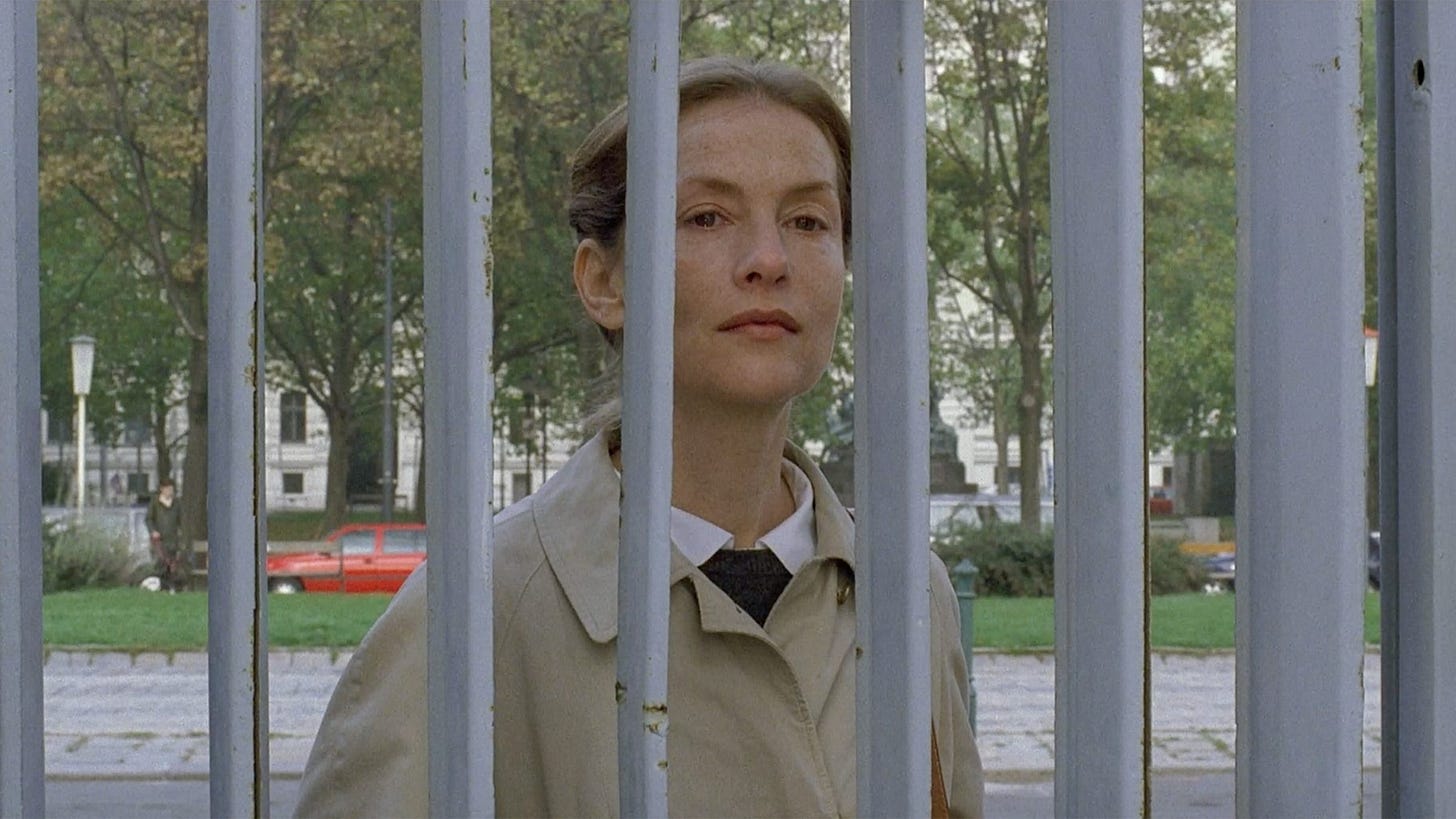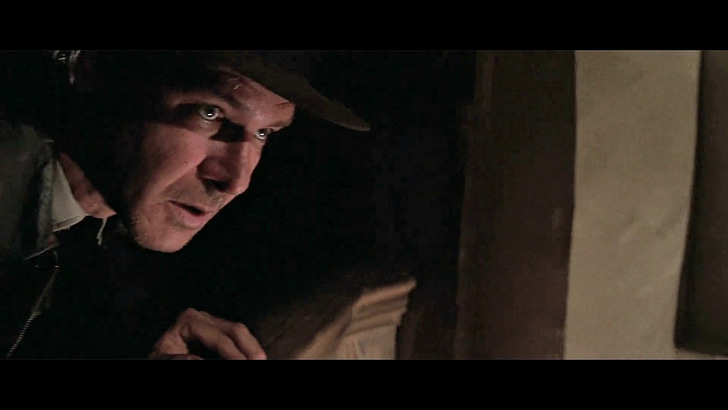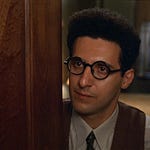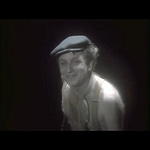I substitute-taught for a class at our older daughter’s school last week. At dinner she said one of her classmates told her, after seeing me in person, that I have the face of a twenty-year-old and the hair of a fifty-year-old.
I’m still processing this bizarre observation. For now I can only say the child was wrong. I do not have the face of a twenty-year-old. I’ve suffered too much sun damage for that.
And my hair is more like the hair of someone who is seventy, or at least sixty. It’s freaking grey as hell.
I should dye it brown. I should make it brown again. I should win a million dollars gambling online and spend it all on my beautiful face. I should do it in the name of building a better world for my face and my ancient hair.
Elfriede Jelinek
I’ve been reading the novel The Piano Teacher by the Austrian author Elfriede Jelinek, who won the Nobel Prize for Literature in 2004. My path to reading it was an unhappy one, and I’ll get into that in a minute. But the novel is great. Of course it is.
I didn’t know it existed until recently. I didn’t know about Elfriede Jelinek until last week, and isn’t that sad? She won the Nobel Prize, in my lifetime. I should have at least known her name.
It’s ridiculous! And, you know, don’t get me wrong. There are more important things than the Nobel Prize.
I don’t ever care much about the Nobel Prize, or other prizes, because I am a creature of light, a child of the stars. As a traveler to this place from distant galaxies, I care not for worldly things like literature awards. My interest is in beauty and the marks that words make on the human soul.
And I don’t think it’s strictly my fault that I near heard of Elfriede Jelinek. When I searched for one of her books through my library, I learned that they don’t have even one of them. When I searched for a copy of The Piano Teacher online, to buy, all I could find were used copies.
Are her books out of print in the United States? I don’t know. I’m not sure how to find that out.
It seems like they are. My heart tells me they are. But the heart can lead its bearer astray.
At least I can say I wasn’t completely ignorant of this author and her work. I once heard about the film adaptation of The Piano Teacher, starring Isabelle Huppert. A friend described it to me, in some detail, in about 2007. She did it with a certain horror in her voice. I recall from her description that someone in the movie gets their hand sliced up with broken glass.
I would be harder on myself, for not knowing about Elfriede Jelinek, and not having seen The Piano Teacher myself, were it not for the childrearing I’ve been participating in for the last eleven years. I’m still hard on myself, for a lot of things, but I want to give myself some slack when I recall how many times in the last decade I’ve watched Frozen, Inside Out, Frozen 2, movies that star CGI Spider-Man, movies that star CGI Legos, and so many others. When you’ve got kids around, it’s hard to engage with the warped psychology of characters that feel uncannily real as they come alive on the page. You’re too busy changing diapers, fetching snacks, and lulling kids to sleep for things like that.
I’m not complaining! I would not give back those fulfilled duties and repeated viewings of children’s films for anything.
And I can’t mention those activities without admitting that, while they have taken up much of my time, they’ve taken up more of the time of my partner in this, the children’s mother, my wife. When the kids need something, they call out to her. It doesn’t matter if I’m nearer to them than she is. She is the one they trust most. She is their mother.
And I could have read The Piano Teacher at any time before our elder daughter was born. It was first published two years after the year of my birth.
All I’m saying is that I’ve spent eleven years without a lot of time to myself. It’s for the best possible reasons, but I’ve missed out on some things. It’s not out of the question that if I’d never once watched Frozen I’d have read the novel The Piano Teacher sometime between 2012 and now.
I didn’t even know that movie was based on a novel until the other day when I was listening to a podcast I like quite a lot, The Culture We Deserve. I don’t remember why Jessa Crispin said something about it, or what she said exactly. I recall only that it came up, and I was like, That movie with the broken glass hands thing was based on a book? What? Oh my god.
Now that I’ve read the novel, I don’t know how anyone adapted it into a movie. I doff my hat to the people who did it, but honestly I’d doff my hat to anyone who read this book and considered making it a film remotely possible.
It’s one of the most intense things I’ve ever read. It’s like watching a slow-motion recording of someone having a panic attack. The passage of time throughout it can be hard to track, because everything happens inside characters’ minds. Interior lives are conveyed to the reader like an out-of-breath messenger has rushed in from a battlefield, to deliver the news, only the news is of lust, obsession, violence, the perils of masculinity and of femininity, and how all of these things can tear apart the lives of unsuspecting people. The messenger can’t catch her breath for the whole novel. Internal and external things are merged. It’s sometimes hard to tell what’s been going on.
I’m not doing a very good job of explaining this book, but that’s okay. It still exists, and reading it for yourself is the best way to find out what’s going on in there.
The novel is about a piano teacher, a professor at a conservatory (or some kind of music school, anyway) who did not make it as a concert performer, didn’t have what it took, and is now an instructor. She lives with her mother in what I could only describe as a relentless fight to the death. The father is long gone. The protagonist and her mother sleep in the same bed. They depend on one another, but they seem to hate one another, too, the way that only blood relatives can.
Erika, the piano teacher, is allowed no freedom whatsoever. She is a grown woman, but it’s understood that she must not stray an inch from the role her mother has assigned to her. She must wear the plainest clothes. She cannot achieve anything like sexual maturity. She is utterly repressed.
The novel is, if nothing else, a depiction of extreme sexual repression. And when we read the novel, we see a more obvious form of the repression we readers endure at all times. We’re all repressed, to some extent, aren’t we? Our repression makes us do things that aren’t ideal. Erika is extremely repressed, and her repression makes her less-than-ideal actions more obvious than ours, and more painful. It hurts to read this book, because Erika is such a faithful, if warped, reflection of everyone who reads it.
She is locked in a kind of mutual desire with a younger student, Klemmer. And I’ve gotten a certain creeping feeling from passages in this novel. It’s a feeling I’ve also gotten from the work of Jane Campion. I suspect, when I get this feeling, that I am being shown the behaviors and motivations of men at their absolute worst by someone who understands men better than any men do.
I mean, let’s face it. The guys in my life are pretty introspective and thoughtful. I’m pretty introspective and thoughtful. But I’m man enough to admit that anyone who’s not a (cisgender) man probably understands the psychologies of men better than most men do. Beyond that, I don’t have much to say about it. It’s the way things seem to be.
There’s a part late in the novel that slapped me across the face with this. I’ll quote it in full, translated by Joachim Neugroschel; for context, suffice it to say that Erika is, if nothing else, a more than competent professor of music and an accomplished pianist, and Klemmer is a male student at least a decade younger than her.
Erika has grown mute, her eyes do not gape, her heart does not swell. Klemmer feels it’s time for his thorough retrospective correction of everything his teacher just said about Franz Schubert. He will barge his way into the discussion. Lovingly he rectifies Erika’s image of Schubert, placing it and himself in the best light. He will win more and more debates. That is what he forecasts to his beloved. One reason he loves this woman is her wealth of experience with the overall repertoire of music. But in the long run, her experience cannot hide the fact that he knows a lot more about everything. The realization gives him supreme pleasure. He raises a finger to underscore his opinion when Erika tries to disagree. He is the insolent victor, and the woman has taken refuge behind the piano to escape his kisses. Words will falter eventually, and feelings win out by sheer persistence and vehemence.
When I read that, I wanted to scream. Jelinek has isolated, in that paragraph, the derangement of men, or at least one way their derangement is often manifested. In that passage I recognize behavior I have seen in many classrooms, whether I was a student in them or an instructor.
I have spent a lot of time in classrooms, talking to people. I have seen them at their best and at their worst. I have listened to people say the most inane and horrible things, and the people who’ve said them have not always been men—no freaking way!—but more often than not, let’s face it, they have been men.
Once, I was in a literature seminar where a couple of grad students from the History department were also enrolled. One was an older guy, at least in his mid-fifties. He was fine most of the time, contributing worthwhile things to conversations about the books we read. Then came the day we were to give presentations. The professor, a woman, said she had to leave halfway through the official end of class, that we’d be dismissed then, but first we would present what we’d been working on. The presentations could take no more than a few minutes. We had to keep things brief. That was the challenge: to distill all of the research and writing we’d been doing to what amounted to an elevator pitch. It’s a useful skill if you learn it, and I was proud of myself, partway through the class, because I did a fairly good job. The thing I presented wasn’t great, but I presented it succinctly, making pivotal use of the word “essentially.” Then this man, one of History’s Big Boys, gave his presentation, and it lasted no fewer than thirty-five fucking minutes. It may have been even longer than that; I remember it was an absurd period of time. He would not stop talking! The professor interrupted him, at one point slapping the table to get his attention, but every time she tried to stop his torrent he shouted at her, insisting he wasn’t finished. This was important, goddamnit! It’s one of those memories one can’t help doubting, because it sounds so unlikely. It’s ridiculous. How could someone be so pigheaded as to do that—to talk for more than ten times the amount of time they were allotted, and turn aggressive every time the authority figure in the room tried to impose the established limits on them? But I remember it clearly. I looked around at my classmates’ incredulous faces. The man would not stop talking.
I’ve never understood it. Elfriede Jelinek helps me understand it, and I think it’s this pair of sentences that really pulls it off:
One reason he loves this woman is her wealth of experience with the overall repertoire of music. But in the long run, her experience cannot hide the fact that he knows a lot more about everything.
Those two sentences are like the sound of a record skipping. Together they form a mathematical equation, made out of words, that expresses what goes on in a guy’s mind when he is faced with a woman who is in some way his superior, whether it be in experience, knowledge, character, virtue, or position, and cannot handle it.
I am mortified to think that at some point in my life I have been this way, have thought this way—or, at least, have behaved in ways that shared in this insanity. I like to think I don’t do this sort of thing in my present life, and I can honestly say I don’t recall a time when I was ever like that History student. But I know better than to think I never was that way, at least a little, probably more than a little. I don’t doubt that while I was quiet and reserved throughout my education, start to finish, I had my moments of poor behavior and broken thinking in workshops and literature seminars.
Elfriede Jelinek really accomplished something, with this novel. I would say she should be recognized for that, but wait a minute. She was already recognized in the most substantial way imaginable. And that was twenty years ago. Come on, man.
Creative Nonfiction
The short chain of events that led me to read The Piano Teacher started when I listened to a podcast by the Los Angeles Review of Books. Three people on the thing were discussing a recent memoir published by a writer whose wife committed suicide, apparently leaving evidence behind that she’d had many affairs with different people throughout their marriage. I had never heard of this book—and why am I always the last one to hear about books? is it because I have kids? am I not on the right listservs?—but they discussed it and also a recent essay by the writer Emily Gould, which is about the events that led to her getting divorced.
The conversation on that podcast was absolutely depressing, and not because the book and essay they discussed in it were sad. The problem was that the things they said about the personal essay and the memoir were exactly the same boneheaded things I heard many people say about memoirs and essays twenty years ago. I haven’t been paying attention, and I didn’t know people still said them. It soured my state of mind to learn that they do.
It was twenty years ago, nearly, that I started taking writing seriously. I started with creative nonfiction. I didn’t write any fiction at all until about 2012. I don’t know for certain why I was drawn first to memoir and personal essay; I guess those genres seemed like the best vessels for the liquid that was sloshing in my head at that time. It didn’t help that throughout college, and in the years that followed on the heels of it, most of the male fiction writers I knew were assholes. They were full of themselves, and they were full of shit. I wanted to have as little in common with them as possible. I’ve since met some really good male fiction writers, who are better writers and better people than those dudes were, and I think I’m now an okay one myself. I know how to turn a frown upside down.
I didn’t realize, when I started out writing nonfiction, what a terrible years-long headache I was volunteering myself for. Nearly every time I met another writer, they were incredulous. I wrote what? Creative nonfiction? “What even is that?” they’d say. “Why would you ever want to write it?” And I knew, when I heard this sort of thing, that no answer would satisfy them. I think all that mattered to them was that, by choosing to write essays, I had chosen not to write short stories and poems. They took it personally. I don’t know why. They wondered aloud how anyone could write about themselves, when of course every poem and story they wrote was a perfectly transparent window to their inert psyches. They said things like, “Well, memoirs are hot right now, I guess that’s where the money is.” It was the only reason some of them could think of for writing one.
Nearly two decades later, on the LARB podcast, some folks have had a similar conversation to the ones I had to endure many times between ten and twenty years ago. The participants wondered aloud why anyone would ever want to write such a book as the memoir this man wrote.
It does sound, as it happens, like there is a legitimately troubling dimension to the book they were talking about. Apparently, the author writes without restraint about someone who has died, and who isn’t here to defend herself. He makes generous use of the things she left behind. It sounds like there’s a fascinating conversation to be had on this subject, but theirs wasn’t it. And then they discussed the recent essay published by Emily Gould, in which she offers many personal details about the breakup of her marriage and what led to it.
What was she thinking? they wondered. Why would she put such details of her personal life on display? How much was she paid for it? It couldn’t have been enough. What could possess someone to do it?
Eventually, one of them did suggest that Gould may have chosen to write a personal essay about her divorce because she wanted to, because that was the most appropriate vessel for the liquid that was sloshing in her head—my words, not theirs. I was glad they reached that point in the conversation, eventually, but it broke my heart all over again that in order to get there they gladly slogged through all of the things I thought I’d never hear again, way back in something like 2016, when I stopped listening.
No one would ever ask Natalie Shapero, after she wrote a poem, what could have possessed her to do such a thing. These questions are reserved for prose autobiographers, and I wish I understood why that was.
Many times I have been faced with the bafflement of other writers who can’t understand why someone would write a personal essay, or memoir. And how does one explain it? I’ve never known how. Sometimes the thing you want to write, the thing you feel you must write, is best suited to the essay or memoir genre. In the same way that “Ode on a Grecian Urn” really works best as a poem, and “The Yellow Wall-Paper” makes a better short story than it would a novel, “Notes of a Native Son” has no business being anything but an essay. It’s not complicated, but I suspect that something happens to the brains of people who work in publishing that prevents them from grasping such a basic concept.
I was seething in my kitchen, as I heard all that they had to say on the LARB podcast. And I’m sure everyone on the podcast is an excellent person. I’m sure they’re very smart.
Still, they seemed to agree that, while they didn’t all understand how in the world Emily Gould would ever write what she did, she is definitely “a master of the form.” And that is simply not true. There are plenty of good things I could say about her essay. She writes with clarity. But based on the evidence I see there, I would not say she has mastered the art of writing a personal essay.
This is the biggest complication I have faced, when trying to defend the essay and memoir genres. The conversation nearly always revolves around a memoir or essay that I don’t think is very good.
It’s the least interesting essay, formally speaking, that always seems to get the most attention. It’s the same frustration poets would face if they had to justify the existence of poetry only by referring to the work of rupi kaur.
The Emily Gould essay is better than rupi kaur’s poems. It does what it sets out to do. But that isn’t saying much. Having read it, I can tell you all of the things that led Emily Gould to get a divorce, and I can explain the ways in which she’s conflicted about it. But I doubt I’ll remember ever having read it a year from now. There’s nothing in her essay that, in my eyes, makes it a work of art.
To put it simply, there’s a thing I expect to see happen in a “great” essay, and in this one it doesn’t happen. I know that’s vague, and would not hold up on one of the more cosmopolitan podcasts.
If I had to elaborate, and walk out on this thin ice, I’d say that the thing I want to see happen, in a great or exceptionally good personal essay, is not only to have the writer analyze the self and the experiences it is made of. I want to see the writer analyze that analysis as it is underway. The essayist has to be like the Argus, with all its eyes probing not only its past and its present, but also the things that the writer is saying about the past and present, as they are being said, all at the same time. And it has to be beautiful. A great personal essay is like being in a dark room where the lights are getting gradually brighter, and even brighter than that, and brighter even still, and somehow, even though you spend the whole essay in the same unchanging room, in the presence of the same isolated mind, and it’s only the light that’s changing, it is irresistible.
It’s an incredibly hard thing to do well. I’ve written essays, and I’m not sure I’ve ever done it well.
And it’s fine that Emily Gould’s essay doesn’t rise, in my eyes, to the level of greatness. Why would anyone care what I think? Who says I’m even right about this? Lots of people have read her essay. It went freaking viral.
By being critical of her work, I don’t mean to be petulant about all of this. I’m just so tired. I’d forgotten how tired I am. It seems like every time I hear someone talk about the genre that I once devoted myself to it makes my blood boil. It’s rare for anyone to say something about creative nonfiction that doesn’t seem to me to be utterly wrong.
It’s like hearing someone say mean things about an ex that you know aren’t true. You’re not still with that person, and there are good reasons for that. So you don’t exactly want to defend them vociferously. But you know that what’s being said is wrong, and you don’t feel like you can sit by and say nothing.
One of the podcasters said that in his opinion no one should write memoirs or personal essays until they’re at least fifty years old. It is only then that they will have achieved the perspective they need to write a good memoir or personal essay.
And I am so tired of this shit. Have we learned nothing? It’s true that with age comes a certain enviable perspective, an ability to analyze the feelings and behaviors of a prior self. But it’s also true that as you age you forget at least as much as you learn. There are things you know at twenty that are lost by the time you turn fifty. You can never get them back.
I don’t know. Fuck it. Whatever.
It was on the better podcast The Culture We Deserve that I heard things far more interesting, such as whatever it was Jessa Crispin said about The Piano Teacher. They do a good job on that podcast, and so do the studs of Michael and Us, a Canadian podcast where two guys watch movies and discuss the implications of those movies. There are probably five million podcasts that fit that description, but theirs is the rare good one. On both of these podcasts, people say things I don’t see coming.
That’s what I want from podcasts. I want to be surprised. I want to hear things I haven’t heard a hundred times before. I want to hear things that don’t make me want to never hear another word again.
Oldman Inside a Youngman
I want to explain the title of this newsletter.
When I was done writing it, I had to think of what to call it. And because the things I’ve written in it make me feel old and used, I had in my mind the Richard and Linda Thompson song “Old Man Inside a Young Man.”
I like that song. I considered, for a moment, a scenario in which Gary Oldman might star in a biopic about the comedian Henny Youngman. He could then write a bestselling memoir called Oldman Inside a Youngman, about his career as an actor and what led him to this role that proved to be his crowning achievement.
Still Another Thing
I remembered, as I was recording the audio version of this newsletter, an animated film that the writer Dinty Moore made thirteen years ago about some of the frustrating things people say about the genre of creative nonfiction. It still exists:












